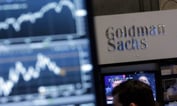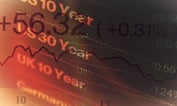The weekend of March 5 was unkind to the ETF industry, from a media standpoint. A gold ETF from iShares temporarily stopped creating new shares until additional shares could be registered with the Securities and Exchange Commission. The ETF was the iShares Gold Trust (IAU).
Headlines varied, but all had the same message. The Wall Street Journal called it a “snafu,” writing:
“It was the latest bruise for the $2 trillion exchange-traded-fund business in the U.S., which has boomed in recent years, attracting investors with low fees and access to asset classes from foreign stocks to commodities.”
Barron’s categorized the event as a “hiccup,” while Investor’s Business Daily[i] identified it as merely a “bump.” No matter the phrasing, nobody reading the news that day would have missed it.
What happened, exactly? The short of it is that demand for gold has been absolutely off the chain this year and demand simply cleaned out the shelves until a new shipment could come in. iShares took care of the issue swiftly, having new shares available by first thing the next trading day. Also notable is that investors could still buy and sell shares on Friday, March 4, despite the seemingly awkward situation.
News outlets pounced. The pundits circled, sharpening their knives. Questions rang out: “Another black eye for the ETF industry?”








 March 28, 2016 at 06:48 AM
March 28, 2016 at 06:48 AM









